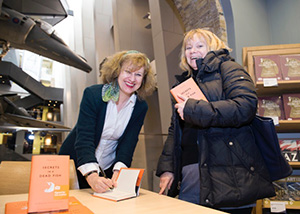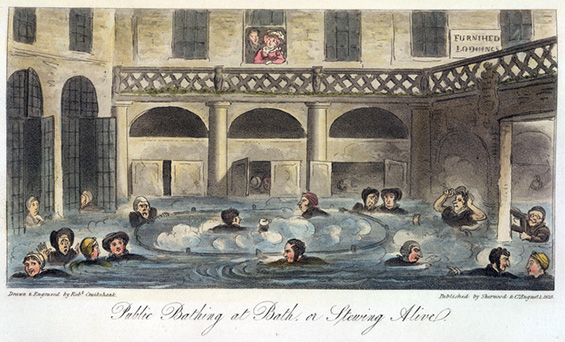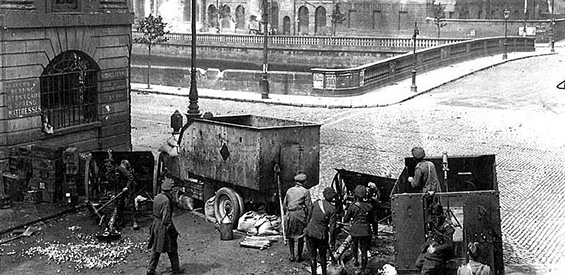
I have given talks and lectures at The Independent Bath Literature Festival, The Sunday Times Oxford Literary Festival, The Blenheim Palace Literary Festival at Woodstock, Words by the Water in Keswick, the Dundas Museum in Ontario, Canada, and to history societies and schools.
If you would like me to talk at an event on any of the following subjects, please contact me. All talks can be delivered in person or via Zoom.
‘Taking the Waters’: The Rise and Fall (and Rise Again) of the English Spa

The English have always been obsessed with bathing. Archaeologists recently discovered that Britons were luxuriating in baths long before the Romans arrived in 43 AD. English bathing culture over the centuries was was riotous, salacious, and sometimes devoted to treatments that did more harm than good, for instance drinking pints of spa water in which diseased bathers had recently swum. English spas were frequented by everyone from royalty (such as Queen Anne, who sought relief from gout at Bath) to the poor of Harrogate who, after partaking of the sulphurous waters, added diarrhoea to their miseries. This talk is a romp through the centuries telling the extraordinary story of English spa from their origins through to their reinvention in the twenty-first century as beauty and wellness resorts.
* There is a separate talk on Richard (Beau) Nash and the Making of Bath Spa
* There is a separate talk on ‘Three weeks in Wet sheets’: Hydrotherapy in 19th-century England
* There is a separate talk From Assembly Rooms to Public Toilets: The uses and abuses of spa architecture
* Individual talks on the spas of Buxton, Bath, Bristol Hotwells, Cheltenham, Harrogate, Leamington Spa, Scarborough, and Tunbridge Wells.
The Lady is a Spy: The Tangled Lives of Stan Harding & Marguerite Harrison

Illustrated Talk – 50 minutes
In the 1920s the names of two remarkable women, Marguerite Harrison and Constance ‘Stan’ Harding, were never far from the front pages of newspapers around the world. They were journalists who covered the violent uprisings in Germany after WWI and then the rise of Bolshevik Russia. They were also spies—Marguerite for the Americans, and Stan, according to Marguerite, for the British. A friendship ended in treachery and revenge after both were imprisoned in Moscow’s notorious Lubyanka Prison. This talk will introduce these two amazing women and tell the story of their tragically intertwined lives.
* There is a separate talk on Stan Harding focussing on her years in Florence.
* There is a separate talk on Marguerite Harrison’s career as a spy
Tea, Coffee and Chocolate: How the British First Fell in Love with Caffeine
Illustrated Talk – 50 minutes

Tea, coffee and chocolate play an important part in the modern British diet. Most people may not know that tea originated in China, coffee was allegedly discovered by a goat herder in Yemen, and chocolate plantations were cultivated in 400 BC by the Olmecs in South America. But did you know that these exotic beverages all arrived in London between 1650 and 1657, causing immense anxiety and debate? This lively talk explains why Europeans were at first so terrified of these drinks: pregnant mothers feared their babies would turn brown if they drank too much chocolate, men claimed tea-drinking caused women to become peevish with their husbands, whilst women felt hard done by in the bedroom if men drank coffee: it supposedly caused their ‘ammunition to be wanting’. We will also learn about some of the ingenious ways they were consumed in the eighteenth century.
* A specific talk on chocolate is available for schoolchildren.
* Separate talk on How the English Fell in Love with Tea.
* Separate talk on How the English Fell in Love with Coffee.
* Separate talk on ‘Food of the Gods’: European Adventures in Chocolate
Tricks of the Trade: Spying in the First World War

Illustrated Talk – 50 minutes
The first task of a spy is to gather information. However, any information collected is absolutely useless unless the spy can communicate it back to his or her own intelligence service. This lively talk will illustrate some of the weird and wonderful ways of collecting and passing on intelligence during the First World War, all retrieved from the memoirs of ten people purporting to have acted as spies. Can a message really be hidden in a dead fish? Why were the British so concerned about washing drying on lines in Belgium? Is there any reason you should be wary of a lady wearing silk stockings? All will be revealed in this humorous illustrated talk.
Illnesses and Cures of the Eighteenth Century

Illustrated Talk – 50 minutes
The average life expectancy in the eighteenth century was 44 years, often much less for women due to the dangers of childbirth. The eighteenth century was not a healthy time to be alive. If you got sick, your options were limited: blood letting, vomiting and applying or consuming herbs, or anything you thought might cure you. Remedies included applying mercury to a cancerous lump, bathing or drinking in spa water contaminated with disease, or applying either fried leeks in butter or live leeches to your haemorrhoids. This is an amusing but serious talk on how people tried to keep healthy and cure themselves during the eighteenth century. It will help us to appreciate modern health care systems based on germ theory, antibiotics and the use of anaesthetic.
Miscellaneous talks
Illustrated Talks – 50 minutes
* The Curious History of English Prophets: Mother Shipton, Joanna Southcott and John Wroe
* Not just Napoleon and Jane Austen: Lesser known Weird and Wonderful Memories from 1815
* Buxton’s ‘Blue Birds’: Canadian Nurses Recovering from Shell Shock in WWI
* Blenheim: A Duke, A Battle and a Palace
* The Duchess of Well-Being: Sarah, Duchess of Marlborough’s Pursuit of Health and Happiness
* Richard (Beau) Nash and the Making of Bath Spa
* ‘Three Weeks in Wet Sheets’: Hydrotherapy in 19th-century England
* Rude, Crude and Lewd’ Literature of the English Spa
* The Forgotten Spas of Bristol Hotwells, Tunbridge Wells, Cheltenham and Brighton
* Sea Bathing and Salt Water Cures: Brighton, The Spas of Margate and Droitwich
* Whatever Did the the Romans Do For Us?: The Introduction of Bathing for Pleasure
* A Lot of Hot Air: How the Brit’s Fell in Love with Sweating
* The Use of ‘Water Therapy’ in Victorian Lunatic Asylums and Hospitals
